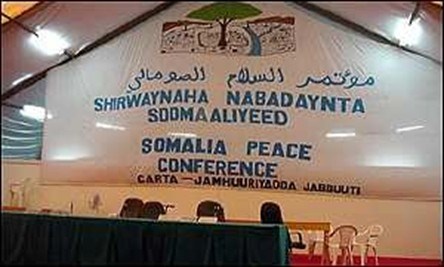Wednesday August 27, 2025

The Arta Peace Conference, held in
Djibouti in 2000, concluded 25 years ago today. After a series of failed
attempts, the Arta peace conference stood out as the first Somali-led peace initiative,
bringing together a broad range of participants, including clan
representatives, civil society actors, and religious leaders. The conference
aimed to restore the central government by creating a transitional constitution
and parliament, pursuing a dual agenda of reconciling warring factions and
addressing political divides. This culminated in the election of Abdiqasim
Salad Hassan as president of the new Transitional National Government (TNG).
Two and a half decades later, we
have to ask: What did Arta actually achieve? Is Somalia any closer to becoming
a stable, self-sustaining state? And most importantly, how long can the current
political deadlock last?
A major flaw of the Arta process was
the assumption that a functioning state could emerge simply by first creating
an administration; the top-down approach. The problem with this approach,
whether overlooked or ignored, is that the cyclical nature of administration
leaves little room for genuine state-building. Politicians are consumed by
day-to-day governance, and the time, effort, and political cost required for
deep structural reform are simply too high. A president on a four-year term
with re-election ambitions lacks the time and political will to initiate such a
risky agenda.
As a result, the constitution
remains unfinished, and the process to finalize it is deeply flawed. The
federal system is ill-defined, and political divisions are entrenched. And
despite repeated promises by presidential contenders to complete the constitution
and hold a one-person, one-vote election, they have consistently failed even to
establish the constitutional court needed to resolve legal and constitutional
disputes. This has created a recurring cycle of political crises.
Adding to the crisis are the
relentless security threats from Al-Shabaab. The Federal Government, propped up
by 20,000 foreign troops and shrinking international support, is led by an
incumbent determined to cling to power at any cost, regardless of the damage to
the country. Within a year, this cycle of political crises will inevitably
repeat, bringing with it the same promises and backroom deals and increasing
public cynicism. Furthermore, the persistent allegations of corruption, from
misusing public funds to engaging in land grabs, have eroded the public and
international community's trust in the integrity of Somalia's political
institutions.
Somalia's current path of
elite-driven bargains, persistent security threats, and dependence on foreign
aid is unsustainable. The first step to break this vicious cycle is a radical
change in direction. The way forward begins with initiation of a genuine
grassroots-level reconciliation process and electing a courageous leadership
committed to fight the rampant corruption, investing time and energy in
building durable institutions, confronting security threats, advancing national
interests, and bridging deep political divides. Without genuine transparency
and reasonable level of public trust, any electoral process (most likely
indirect) risks being perceived as predetermined with little or no public
legitimacy, thereby undermining the very foundation of the nation's fragile
democratic transition.
Abdirashid Elmi, PhD, Professor at Kuwait University,
Kuwait, E-mail: ainanh63@yahoo.com
Mohamed Musa, PhD, Professor at Gulf University of
Science and Technology, Kuwait, E-mail: beddel06@gmail.com